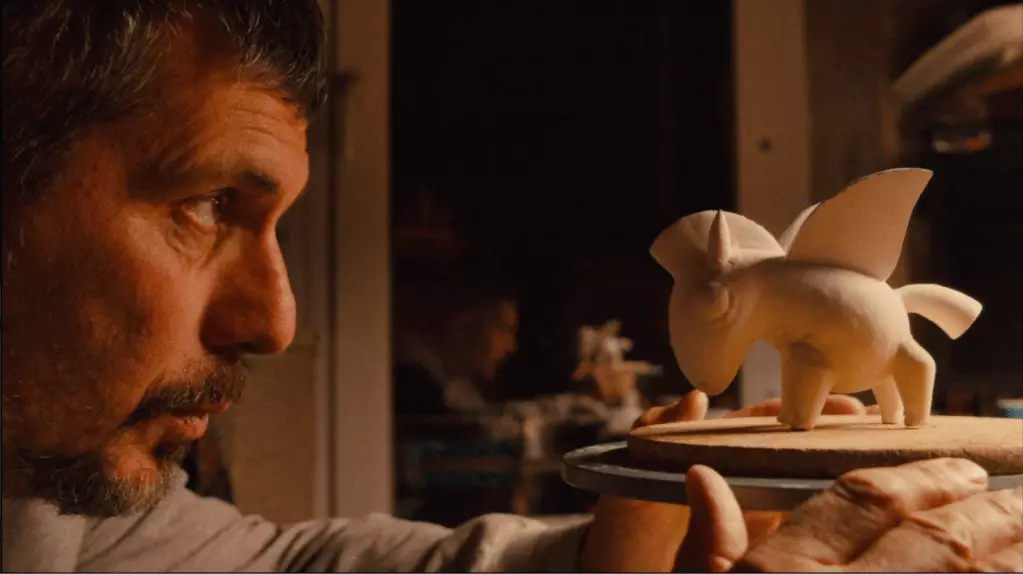The recently acclaimed documentary “Porcelain War,” helmed by directors Brendan Bellomo and Slava Leontyev, sheds light on the resilience of Ukraine amidst the chaos of war. The film, praised at various industry awards and festivals, is described metaphorically as a chronicle of a delicate entity—Ukraine—portrayed as “porcelain,” both fragile yet indomitable. This stark image resonates deeply, as it encapsulates the essence of a nation under siege that remains profoundly connected to its cultural and artistic identity.
Leontyev, one of the film’s subjects and a Ukrainian artist who chose to remain in his homeland during the Russian invasion, underscores the power of art over weaponry. In a world where conflict often dictates the narrative, his belief that “the camera is far more powerful than a rifle” serves as a poignant reminder of the transformative potential of creativity. His perspective is a beacon of hope, suggesting that artistry can foster resistance and resilience even in the bleakest of circumstances.
Guillermo del Toro, the acclaimed filmmaker and three-time Oscar winner, has publicly endorsed “Porcelain War,” emphasizing the necessity of art in this tumultuous era. In a recent engagement with the filmmakers, del Toro articulated a grim reality faced by artists worldwide: an encroaching sentiment that diminishes the value of artistic expression. He highlights a concerning trend where creativity is often dismissed as impractical or irrelevant amidst societal upheaval. Such observations are critical, as they call for a re-evaluation of the role of art not just as a form of entertainment but as an intrinsic element of human experience and resistance.
Del Toro’s advocacy serves as a significant counter-narrative to the widespread perceptions of art in a consumerist culture. By asserting that art and spirit are inherently connected, he challenges us to reconsider how we view creative expression in light of existential threats. “Porcelain War” engages audiences in this dialogue, fostering a deeper understanding of the stakes involved in maintaining artistic integrity.
The filmmakers celebrated their recent achievements, including wins from the Directors Guild of America (DGA) and a nomination from the Producers Guild of America (PGA), reinforcing the significance of “Porcelain War” as a vital cultural artifact. The celebratory atmosphere at the Fairmont Century Plaza highlighted the collaborative spirit that unites artists in standing against oppression. With the backdrop of contemporary political shifts, such as Donald Trump’s controversial changes to the board of the Kennedy Center for the Performing Arts, the urgency of del Toro’s message gains additional relevance.
As Oscar voting commences, the “Porcelain War” team is orchestrating virtual Q&A sessions, alongside in-person screenings worldwide, thus amplifying their message. The support from prominent figures like Chris Columbus, Rashida Jones, and Julie Taymor signifies a collective movement within the artistic community to stand in solidarity with Ukraine and elevate the conversation around the power of art.
At its essence, “Porcelain War” is not merely a documentary; it is a clarion call to recognize the abiding power of art in tumultuous times. The ongoing global dialogue, ignited by the film, is a testament to the generations of artists who harness creativity in the face of adversity. As the cultural landscape faces unprecedented challenges, the spirit of Ukraine shines through its art, reminding us all that creativity persists against the odds, uniting humanity in resilience and hope.

Leave a Reply